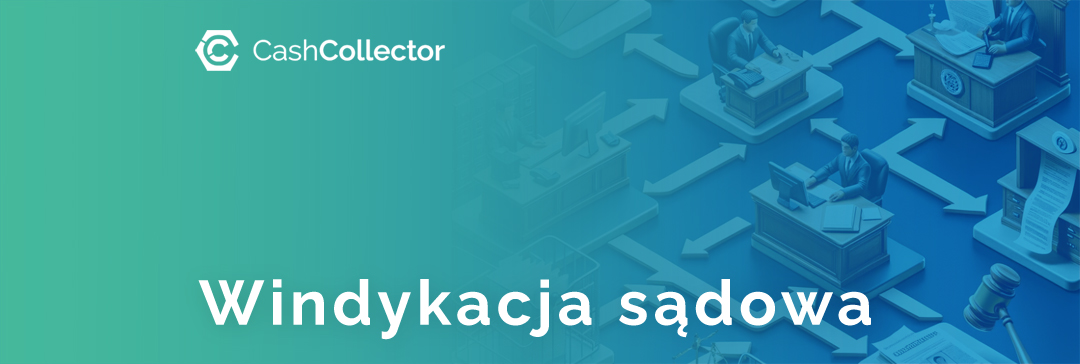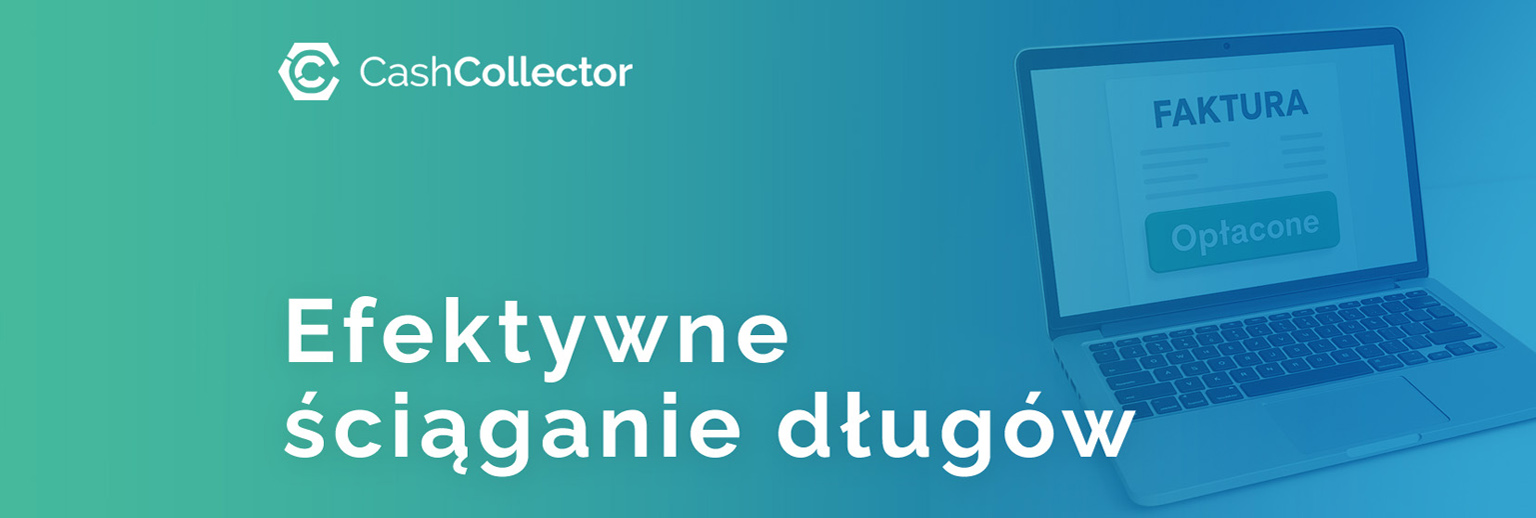Porady
26.07.2024
Nieuregulowane faktury to problem, z którym wielu przedsiębiorców styka się na co dzień. W dzisiejszym artykule przyjrzymy się konsekwencjom niezapłaconych faktur oraz przedstawimy skuteczne metody odzyskiwania pieniędzy.
Niezapłacone faktury: jakie są Twoje opcje, gdy klient nie płaci?
Niezapłacone faktury stanowią istotne wyzwanie dla przedsiębiorców. Według danych, każdego miesiąca aż 880 osób szuka w Internecie informacji na temat nieuregulowanych faktur. Przyczyny mogą być różne – od trudności finansowych klienta po zwykłe zaniedbania. Dla firm oczekujących na zapłatę, to nie tylko utrata środków, ale także wpływ na płynność finansową.
Najczęstsze powody niepłacenia faktur:
-
- Problemy finansowe klienta: dłużnicy często borykają się z trudnościami finansowymi, co utrudnia im terminowe regulowanie zobowiązań.
-
- Zaniedbania administracyjne: błędy w księgowości, przeoczenia czy braki w dokumentacji to powody, dla których faktury mogą pozostać nieuregulowane.
-
- Niejasne warunki umowy: nieprecyzyjne lub niekompletne umowy mogą prowadzić do sporów co do zakresu świadczeń, co utrudnia uregulowanie płatności.
Konsekwencje prawne nieuregulowanych faktur
W przypadku braku uregulowania zaległych należności, konsekwencje prawne mogą być dotkliwe. Prawo przewiduje terminy, w których należy podjąć działania, aby odzyskać pieniądze. Przekroczenie tych terminów może prowadzić do dodatkowych sporów. Znalezienie odpowiednich środków prawnych i działań może być kluczowe dla sukcesu.
Konsekwencje prawne dla osób niepłacących faktur to m.in.:
-
- Pogorszenie wiarygodności finansowej: nierzetelność w regulowaniu faktur może skutkować obniżeniem wiarygodności finansowej dłużnika. To z kolei wpływa na zdolność uzyskiwania kredytów czy podpisywania nowych umów biznesowych.
-
- Rosnące koszty w postaci odsetek karnych: zgodnie z przepisami prawa, zwłoka w spłacie generuje odsetki. Dłużnicy muszą zmierzyć się z rosnącymi kosztami, które z czasem mogą znacznie przewyższyć pierwotną kwotę zadłużenia. Wysokość opłaty windykacyjnej reguluje art. 10 ustawy o przeciwdziałaniu nadmiernym opóźnieniom w transakcjach handlowych. Zgodnie z tym przepisem wysokość rekompensaty uzależniona jest od wielkości wierzytelności.
Opłata windykacyjna wynosi:
-
- 40 euro, gdy wartość świadczenia pieniężnego nie przekracza 5.000 złotych;
-
- 70 euro, gdy wartość świadczenia pieniężnego jest wyższa niż 5.000 złotych, ale niższa niż 50.000 złotych;
-
- 100 euro, gdy wartość świadczenia pieniężnego jest równa lub wyższa od 50.000 złotych.
-
- Ryzyko egzekucji komorniczej: w sytuacji braku uregulowania zobowiązań, wierzyciel może zdecydować się na wszczęcie egzekucji komorniczej. Dla dłużnika oznacza to możliwość zajęcia majątku w celu zaspokojenia wierzytelności.
-
- Ograniczenia w działalności biznesowej: dłużnik może napotkać trudności w dalszym prowadzeniu swojej działalności biznesowej. Nieuregulowanie zobowiązań stanowi podstawę dla wierzyciela do zgłoszenia wniosku o upadłość takiego kontrahenta.
-
- Wpisanie do rejestru dłużników: wierzyciel ma prawo wpisać dłużnika do rejestru dłużników, co może skutkować trudnościami w uzyskaniu leasingów oraz negatywnie wpłynąć na relacje biznesowe.
-
- Straty wizerunkowe: nieuregulowanie faktur może prowadzić do utraty zaufania ze strony kontrahentów i wpłynąć na reputację dłużnika na rynku. Wątpliwa reputacja może być również równoznaczna z koniecznością płacenia zaliczek na poczet ewentualnych przyszłych umów czy zamówień, a kontrahenci nie będą wyrażać zgody na odroczone płatności.
-
- Eskalacja konfliktów prawnych: w przypadku braku zgody na spłatę zobowiązań, dłużnik musi się przygotować na możliwość wszczęcia postępowania sądowego, co generuje dodatkowe koszty i stres związany z konfliktem prawnym.
Terminy i etapy procesu:
-
- Upływ terminu płatności: po upływie terminu płatności faktury wierzyciel może rozpocząć proces odzyskiwania środków.
-
- Wysłanie przypomnienia: pierwszym krokiem jest zazwyczaj wysłanie przypomnienia o zaległej płatności. To etap miękkiej windykacji, mającej na celu uzyskanie płatności bez konieczności angażowania sądu.
-
- Wezwanie do zapłaty: w przypadku braku reakcji na przypomnienie, wierzyciel może wystosować oficjalne wezwanie do zapłaty. Jest to bardziej formalne pismo, w którym określa się ostateczny termin regulacji długu.
-
- Windykacja sądowa: jeśli wezwanie do zapłaty pozostaje bez skutku, wierzyciel może podjąć kroki prawne, wszczynając postępowanie sądowe. To już etap tzw. twardej windykacji.
-
- Egzekucja komornicza: w przypadku wydania wyroku sądowego na korzyść wierzyciela, komornik może podjąć działania egzekucyjne, takie jak zajęcie majątku dłużnika.
W przypadku braku skuteczności standardowych działań, takich jak miękka windykacja czy przypomnienia, warto rozważyć skorzystanie z bardziej zaawansowanych rozwiązań, takich jak zautomatyzowany system windykacyjny, aby skutecznie zarządzać procesem odzyskiwania należności.
Konsekwencje niezapłaconych faktur dla Twojego biznesu
Niezapłacone faktury nie tylko wpływają na bieżącą sytuację finansową, ale również mogą zagrażać stabilności firmy. Kiedy ilość nieuregulowanych faktur rośnie, utrzymanie płynności finansowej staje się trudniejsze. Automatyzacja procesu odzyskiwania należności, zwłaszcza przy niewielkich kwotach, może być kluczowa dla ochrony przed negatywnymi skutkami niezapłaconych faktur.
Pamiętaj również, że nie istnieje minimalna kwota windykacji, o czym przeczytasz m.in. tutaj: https://cashcollector.eu/blog/czy-istnieje-minimalna-kwota-windykacji/
Jak odzyskać pieniądze z niezapłaconych faktur: 3 sposoby
Proces odzyskiwania należności może przybrać różne formy. Od delikatnych przypomnień i miękkiej windykacji po bardziej zdecydowane kroki, takie jak korzystanie z usług tradycyjnych firm windykacyjnych.
Warto dostosować strategię do konkretnej sytuacji. Trzecim sposobem jest skorzystanie z usług firm takich jak Cash Collector, który oferuje nowoczesne podejście do odzyskiwania pieniędzy, zwłaszcza przy niewielkich kwotach dzięki zautomatyzowanemu systemowi windykacyjnemu.
Rekompensaty i odsetki od niezapłaconej faktury
Prawo przewiduje możliwość naliczania rekompensat i odsetek od niezapłaconych faktur. Jest to istotne, aby pokryć dodatkowe koszty związane z brakiem terminowej zapłaty. Znając zasady naliczania odsetek i rekompensat, można zabezpieczyć swoje interesy.
Naliczanie odsetek za opóźnienie w płatnościach:
Prawo przewiduje możliwość naliczania odsetek za opóźnienie w płatnościach. Zazwyczaj stosuje się stawkę ustawową, która wynosi obecnie 8% w skali roku. Jeśli jednak umowa przewiduje inną stawkę, to właśnie ta stawka będzie miała zastosowanie.
Przykład:
-
- Kwota zadłużenia: 10 000 PLN
-
- Stawka odsetek: 8%
-
- Opóźnienie: 30 dni
Obliczenia:
10000PLN∗(8
W rezultacie, naliczone odsetki wyniosą 65,75 PLN.






